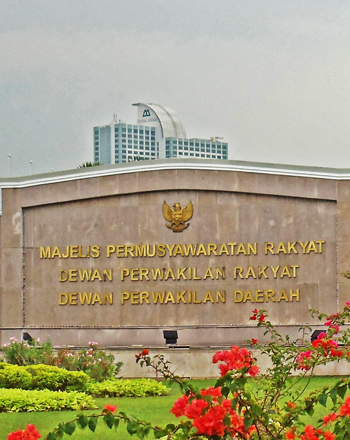Indonesia’s House of Regional Representatives is one of its worst performing political organisations
Jeremy Mulholland
 |
The DPD is at the bottom of the heapJeremy Mulholland |
Under Suharto’s New Order, political power and wealth was centralised in Java. When Suharto was forced to step down in May 1998 reformist demands included greater elite responsiveness to the needs and aspirations of the regions, where more than half of Indonesia’s population lives. A half-hearted consensus emerged among the Jakarta-centric ruling elite: that the demands of regions must be accommodated through so-called ‘big bang’ decentralisation and autonomy.
Legislative change eventually led to contested elections at provincial and district/city levels and the devolvement of some control over the provision of public services to local bureaucracies. The end of Suharto’s rule also opened the way for constitutional change. Phoenix-like out of the ashes of the original 1945 Constitution, four constitutional amendments were passed between 1999 and 2002 that weakened the People’s Consultative Assembly (MPR) and redistributed power between the presidency and a stronger National Parliament called the People’s House of Representatives (DPR). This process also removed regional delegates of the MPR in order to create a new parliamentary chamber called the House of Regional Representatives (DPD). The establishment of the DPD was psychologically extremely important, as it gave Indonesians from the regions confidence that they are represented in the political mix in Senayan.
In the 2004 elections, four candidates were elected from each province











